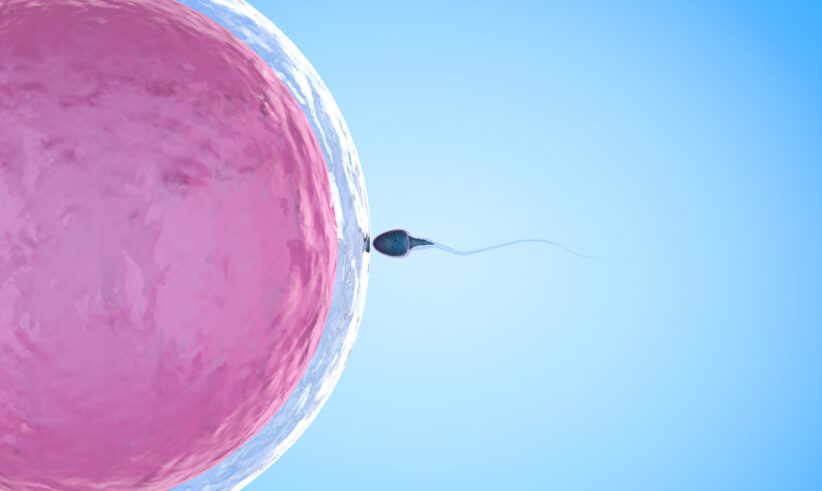October 17, 2017
By Korin Miller, Self Magazine
When it comes to fertility preservation, egg freezing seems like the default option on the table. But, for some people, embryo freezing might be the way to go.
Chrissy Teigen, for instance, recently told InStyle that she and husband John Legend have one remaining embryo left from fertility treatments that she went through years ago. She said it’s still frozen and will be used in a few months to try for another baby.
The main difference between egg freezing and embryo freezing is that embryo freezing requires sperm.
With egg freezing, a woman’s eggs are extracted and then frozen for future use, Brian Levine, M.D., a reproductive endocrinologist and the practice director at CCRM New York, tells SELF. But with embryo freezing, the woman’s eggs are fertilized with sperm and then frozen for the future.
The egg (also known as an oocyte) is basically made up of one cell, which is mostly water, Jane Frederick, M.D., a board-certified reproductive endocrinologist at HRC Fertility, tells SELF. “When you freeze the egg, you’re basically taking all the water out of it and placing it into liquid nitrogen,” she explains. “Because it’s one large cell made mostly of water, it’s not as sturdy as an embryo.” Embryos, on the other hand, are made up of 100 cells and are stronger than eggs, Dr. Frederick says. “When you take water out of an embryo, it still has a lot of structure to it,” she says.
If you choose to freeze your eggs, you’ll take fertility drugs for up to two weeks to stimulate production of the eggs and will have regular monitoring via ultrasound to see how they’re developing, Edward Marut, M.D., IVF medical director at Fertility Centers of Illinois, tells SELF. Once the eggs are ready to be harvested, you’ll undergo an egg retrieval process in your doctor’s office (while sedated), which uses a nonsurgical ultrasound-guided vaginal retrieval method. “After eggs are retrieved, they are flash-frozen,” he says.
However, if you have a partner or sperm donor at that time, your eggs can then be taken to a lab where they’re fertilized with sperm and grown for five days before being frozen, Dr. Frederick says.
While neither procedure is considered experimental anymore, they still aren’t recommended as “fertility insurance.”
People choose to freeze their eggs or embryos for a number of reasons. “The first group that always lead this topic are those women who have been diagnosed with cancer who will undergo treatment that destroys eggs,” Alan S. Penzias, M.D., chairman of the Practice Committee of the American Society for Reproductive Medicine (ASRM) and an associate professor of obstetrics, gynecology, and reproductive biology at Harvard Medical School, tells SELF. Women in this group will typically freeze their eggs before starting cancer treatment in hopes they can use them to conceive a baby down the road.
Egg freezing may also be used in donor egg situations or in couples who are undergoing IVF but don’t want to freeze embryos. Embryo freezing, specifically, is often an option for people who are trying to get pregnant now through IVF and have more embryos than they’re ready to use right away, Dr. Frederick says.
Although the process of egg freezing used to be labeled an experimental procedure by the ASRM, the organization now says that women can use egg freezing as a procedure when they have fertility problems or conditions that could impact their future fertility. But it’s still not recommended as an insurance policy that would allow you to have kids whenever you want someday—although there are certainly people who get the procedure for that reason.
“There are not yet sufficient data to recommend oocyte cryopreservation for the sole purpose of circumventing reproductive aging in healthy women because there are no data to support the safety, efficacy, ethics, emotional risks, and cost effectiveness of oocyte cryopreservation for this indication,” the American Congress of Obstetricians and Gynecologists (ACOG) said in a 2014 committee opinion.
It’s important to remember that neither egg freezing nor embryo freezing is a sure thing.
“For an individual, the cost/benefit analysis is quite personal, but nobody should walk away from a conversation thinking that freezing oocytes represents a guarantee of future childbirth,” Dr. Penzias says.
Given that eggs are more fragile than embryos, there’s a chance that some can be lost in the thawing process—a greater chance than when embryos are thawed. “It may take 15 or more frozen eggs to eventually result in one or two good quality embryos due to attrition as eggs are thawed, fertilized, and either transferred or frozen again,” Dr. Marut says. Therefore, if you have a partner you know you want to have kids with, it makes more sense to freeze your embryos, Dr. Frederick says.
And, while many eggs and embryos typically survive the thawing process, that doesn’t mean you’ll end up with a baby. “Even in younger women (i.e. those under 38), the chance that one frozen egg will yield a baby in the future is around 2 to 12 percent,” the ASRM says on its website. “As women get older and egg quality goes down, the pregnancy rate per frozen egg drops further.”
It typically takes five to six thawed eggs to make a good embryo, Dr. Penzias says, but it ultimately depends on the person. “I’ve seen cases where a single thawed egg results in a great looking embryo and I’ve seen cases where 10 thawed eggs don’t yield a single quality embryo,” he says. “We want women who are thinking about freezing eggs or who have frozen eggs to have a good understanding about typical results but to be prepared for worse than average results.”
That said, you shouldn’t just look for the nearest sperm source so that you can freeze embryos for their durability. “If someone is unsure about the sperm source, then freeze eggs,” says Dr. Levine. “Women should not just use donor sperm or a boyfriend or friend as a sperm source to fertilize eggs. If someone wants children at a later date with a certain partner, then freeze embryos.”
As always, if you’re not sure which method is right for you, talk to your doctor. They should be able to steer you in the right direction.


